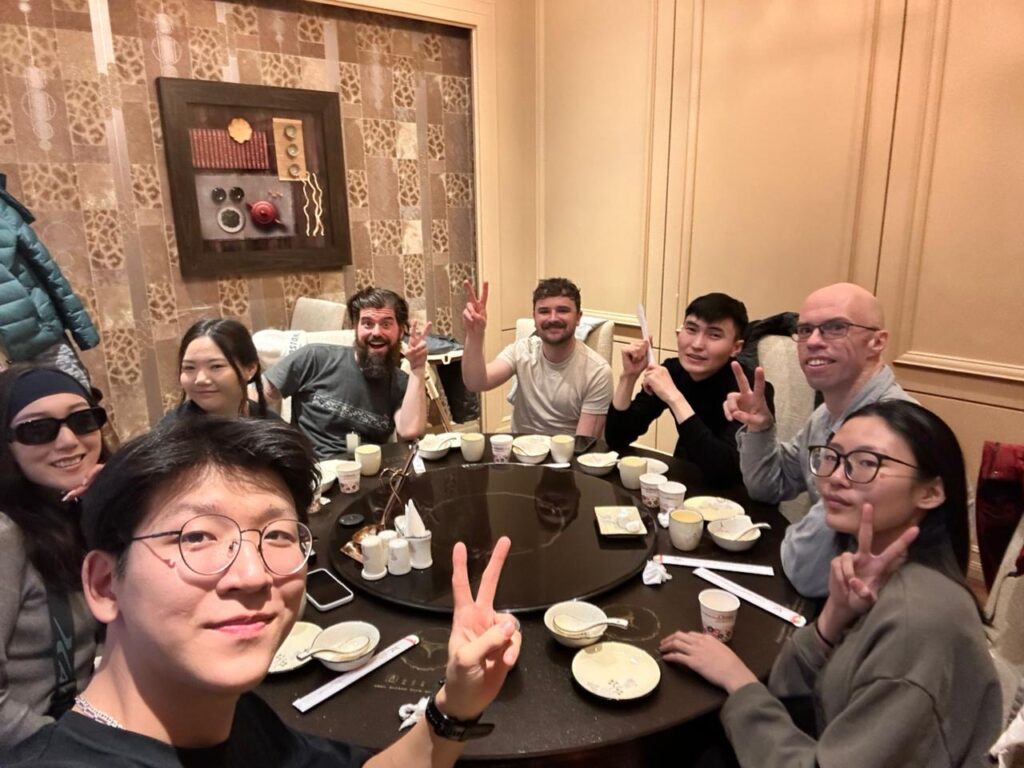Sam Skuse, a graduate of the UoP TESOL course, tells us about his experiences Teaching English in Outer Mongolia (usually just called Mongolia).

Hello Sam, Great to see you again, can you tell us about your current job?
Thanks, great to see you again too! So after completing the TESOL, I accepted an English Teacher position with Wall Street English, which is a global company that I’d been really interested in working with for quite a while. They have a good reputation for looking after their teachers and having a really user-friendly teaching syllabus. I was also particularly interested in teaching adults, which is what Wall Street English specialise in.
Mongolia hadn’t even been on my radar, in all honesty. But once I was offered the first interview I began to research the country, and the opportunity to work in such a quickly-developing country that was so immersed in natural beauty and unique traditions and culture became one that I didn’t want to pass up. So, despite being offered positions in a number of different countries, it was the WSE Mongolia position that I opted for. I’m happy to report that I am more than satisfied with this decision six months in!
Wow – it sounds like a really unique experience – can you tell us what a normal day is like for you there?
Sure! So generally my working hours are 11am-8pm, which might not suit everyone but I personally love. I can start the day at my own pace, exercise and do some teaching prep. I head into the school around 10:30, which is only 10 minutes walk from my apartment. I set up my classroom and begin my first class. My classes are split between small assessment classes, called Encounters, which are designed to test the progress of the students, and larger classes called Social Clubs. While the Encounters have a set syllabus to follow, the Social Clubs are completely free for the teachers to design themselves.
As a new teacher, I’ve found this system to be a perfect blend of set material and scope for creativity that’s allowed me to improve quickly without feeling too regimented. I finish my last class at 8pm, finish writing my student feedback and then head home. On Fridays or the weekends, I will often head to a restaurant with the other staff and teachers which is always a lot of fun. But generally, I’ll get home on weekdays completely exhausted and ready to recharge. I give all my energy to teaching, as most teachers do, and I wouldn’t have it any other way honestly!
What challenges have you faced since you relocated to Mongolia
Every teacher here, and any Mongolian person too for that matter, will tell you same three challenges about living in Ulaanbaatar (the capital of Mongolia and the home to almost half of the total population of the country). First, the climate. While the summers are beautiful and warm, winter is bitterly cold. Temperatures routinely get to -30c, and though snowfall is relatively low, every surface is frozen solid. This has not been as difficult to deal with as I thought it might, but there’s no doubt that it is a significant challenge.
The second and third challenges are air pollution and traffic. Ulaanbaatar is one of the most polluted capital cities in the world, due to the burning of coal for warmth in the winter, and the traffic is extremely congested for most of the day. The latter has been less of an issue for me since I have no need of a car here, but the air pollution is certainly unpleasant.
A more personal challenge for me has also been living in a country that has so few English speakers, and the language barrier can be very frustrating at times. But I was prepared for this, of course, and with some first-rate gesticulating and some less-than-first-rate Mongolian I can usually get myself understood.
What’s the best thing about living and working in Mongolia?
Put simply; the job, the students and the nature. It really has been a perfect first job in teaching and I can feel myself developing and improving every day. The students are usually very motivated and enthusiastic and the mountain ranges, lakes and forests of Mongolia are truly stunning. As we approach the Spring and the promise of warmer weather, I’m very excited to see as much of what Mongolia has to offer as I possibly can.
What’s it like teaching English there?
Great fun! There are challenges, especially as a new teacher who is still developing and improving, but I really love the syllabus, the creative license to design some of my own classes, and levels of enthusiasm from the students. I’ve been supported so well by the company, who really focus on how they can get the best of me for our mutual benefit, and always offer support and additional training should I require it.
What’s the most rewarding aspect of your job?
I would have to say after the lower-level students have had their first classes, and they come out beaming and full of excitement having made a start to their English language journey and a significant step toward their goals. The majority of the students are learning English to further their careers and realise their dreams, whether in Mongolia or further afield (some even tell me their dreams of studying or working in the UK one day). To be a part of that and to see the appreciation reciprocated is something quite special.
Do you feel the UoP TESOL course prepared you well for your role as an English teacher in Mongolia.
Absolutely, no shadow of a doubt. Without the UoP TESOL course, there’s no way that I would have been anywhere near as prepared for this opportunity than if I had done a standard TEFL course. That’s no disrespect to other courses, but having a significant amount of observed teaching hours, the guidance of highly skilled and experienced teaching staff and the accreditation of an established university like UoP just sets you up for a teaching role and sets you apart from other candidates. I believe the UoP TESOL course was a significant factor in being offered my current role, and the reason why I have been able to hit the ground running as successfully as I have been able to.
Thanks, and do stay in touch, it’s so great to hear your interesting stories.
Thanks! Wishing the whole TESOL team all the very best, and thanks again for everything.

